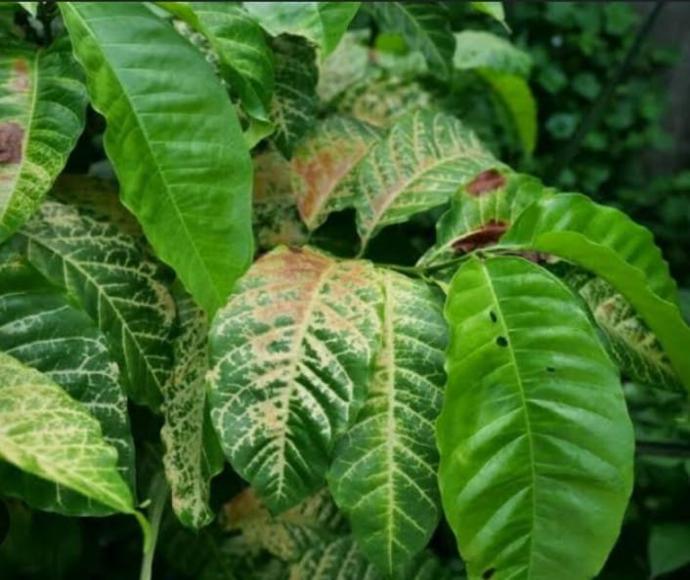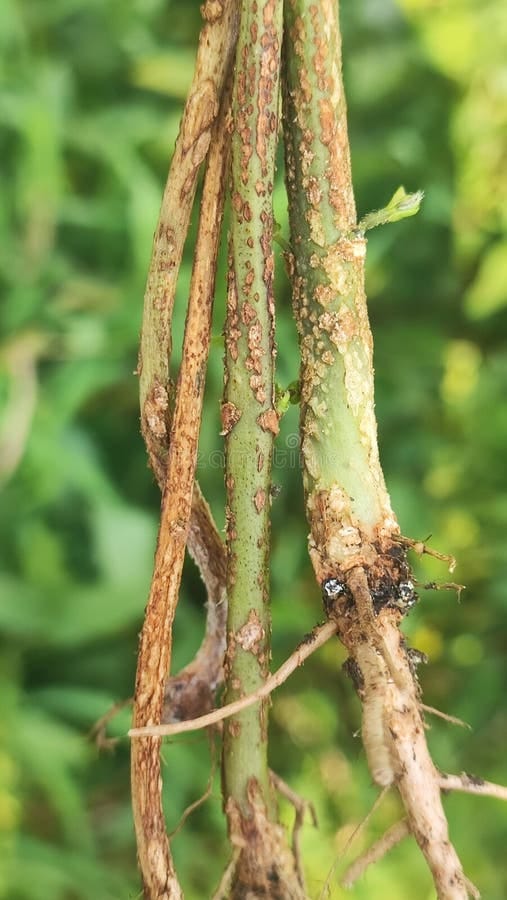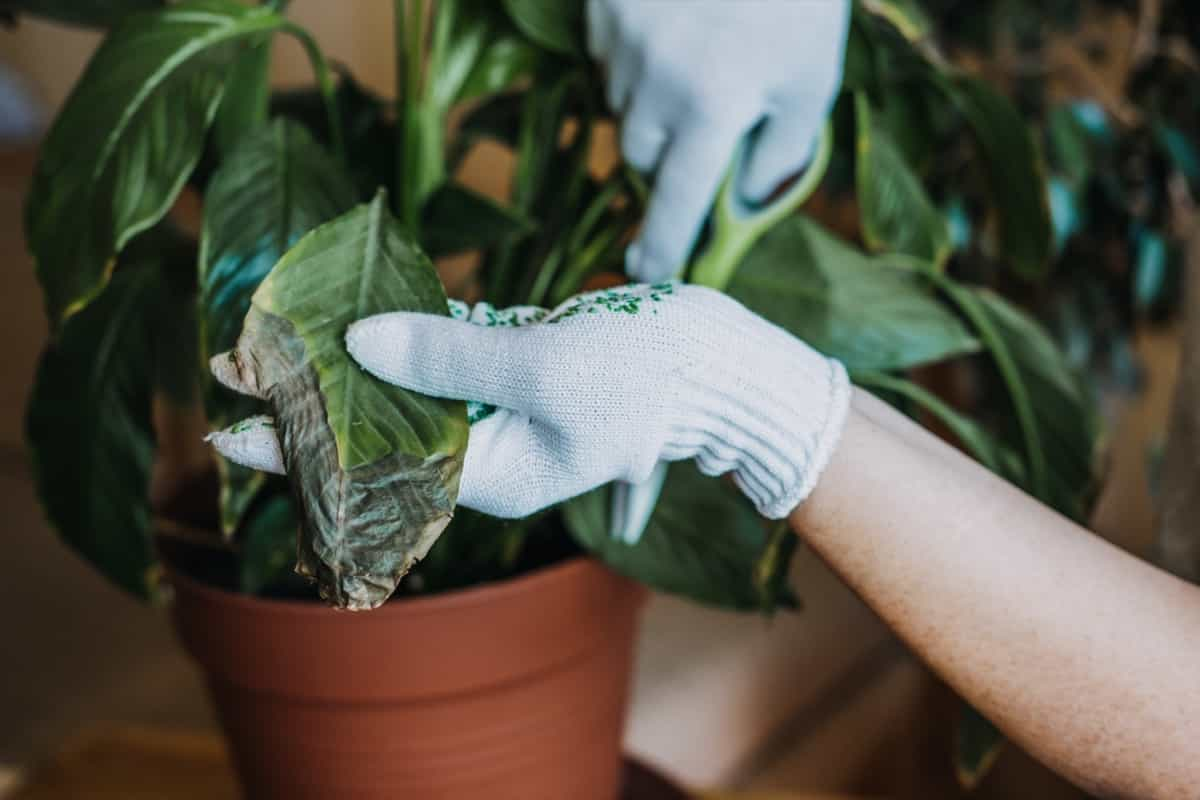Garden Croton Plant
Garden Croton, a variety of Croton, thrives in well-draining soil and bright, indirect light. Keep the soil consistently moist but not waterlogged. Pruning helps maintain a compact shape and enhances the ornamental appearance of its unique foliage.
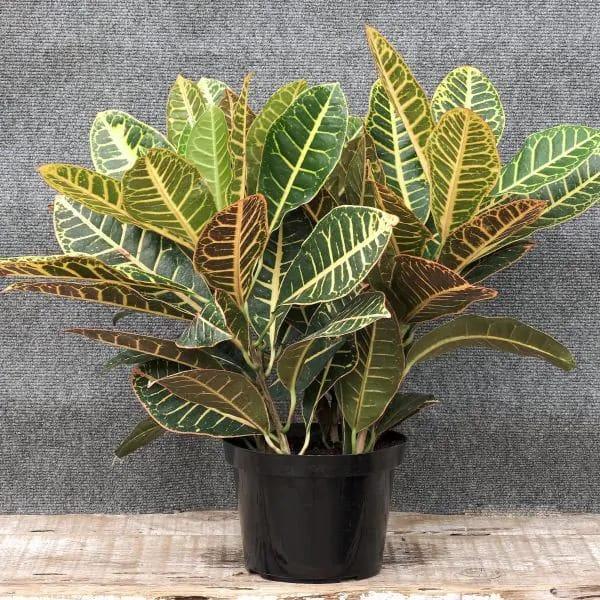
Habit
Shrub
Height
Up to 6 ft
Growth
Fast
Soil
Well Drained, Loamy
Shade
Full Sun to partial shade
Moisture
Moist
Edible
No
Medicinal
No
Origin
Asia
Climatic Condition
Tropical, Subtropical
Temperature (°)
18-30
Humidity (%)
50-80%
Potting media
Peat+Compost
Fertilizers
Organic
Watering
Moderate
Plant Weight
500-800 g
Flowering Time
Year round
Soil Ph level
6.0-7.5
Water Ph level
6.0-7.5
Soil EC
1.0-1.3
Yield Per Plant
Ornamental
NPK ratio
3:1:2 or 20:20:20
life Span
10-20 yrs
Health Benefits
Suggested Grow Media or Potting Mix ?
50% peat, 25% perlite, 25% compost
Suggested Fertigation/Fertilizers
Fertilize every 2-3 weeks with a balanced fertilizer.
Common Diseases and Remedies
Anthracnose , Stem canker , Blast , Sheath rot .
Irregular spots or lesions , dark reddish to brown spots .
Use botanicals , pruning and thinning .
HEALTH BENEFITS
- Toxic to humans and pets if ingested.
- Not used medicinally due to toxicity.
What Is A Garden Croton Plant?
Garden Croton (Codiaeum variegatum) is a colorful plant known for its variegated leaves. It is often grown as an ornamental or in the garden during warm weather. Crotons are available in a variety of leaf types and colors, making them popular for adding interest to the landscape. They need well-drained, bright and warm soil to thrive.
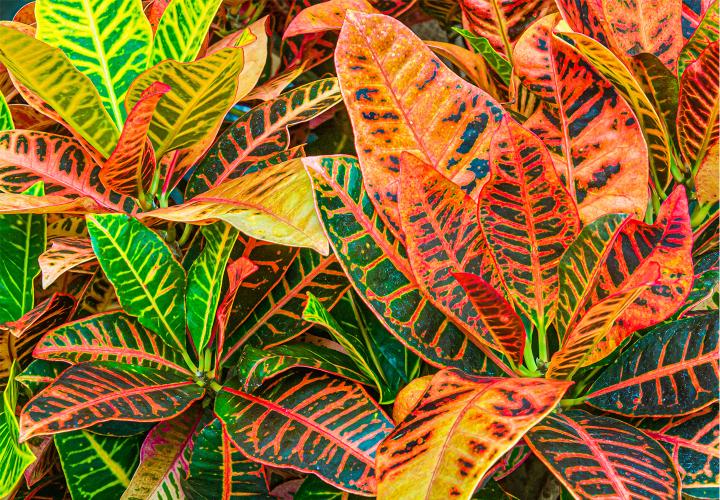
What Are The Different Types Of Garden Croton Plants?
There are many different types of garden croton plants known for their beautiful leaves. Some popular varieties include Croton Petra, Mama Croton, Binton and Golden Pink Croton. Each has a unique pattern of foliage, size and color that adds variety to the garden landscape.
How to Care for Garden Croton ?
1.Location:
Garden crotons thrive in well-drained soil and need a location in full sun to partial shade. Make sure they get at least 6 hours of sunlight a day. Water regularly to keep the soil moist but not waterlogged. Fertilize with a balanced fertilizer throughout the growing season. Prune properly and remove dead or yellowed leaves. Watch out for pests such as aphids and scales and deal with them if necessary. Store in a warm, humid place, especially during cold months.
2.Sunshine:
Provide bright, indirect sunlight. Crotons thrive in a good location but avoid strong direct sunlight. Maintain a warm environment, preferably between 15-24°C (60-70°F). Protect the plants from drafts and just let the temperature drop.
3.Soil:
Garden crotons thrive in well-drained soil rich in organic matter. Use a mixture of potting soil and perlite for good aeration. Water when the topsoil is dry and provide good drainage to prevent water stagnation. Keep the soil moist at all times but not waterlogged. Apply water evenly every 2-4 weeks throughout the growing season. Prune properly and remove dead or yellowed leaves. Crotons love direct sunlight, so provide bright, filtered water to promote growth.
4.Hydration:
Water your garden crotons when the soil above them is dry. Provide proper drainage to prevent water retention at the roots. Keep the soil moist but not wet at all times. Adjust the water frequency according to the environment; They will need more water in hot weather. Humidity is very important; Spraying water or keeping a pot of water nearby may help. Avoid overwatering as crotons are prone to root rot.
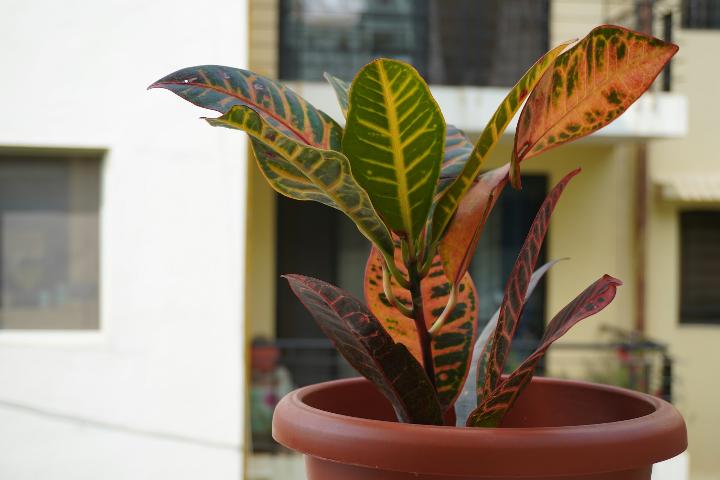
5.Nourshiment:
To maintain garden barriers, provide well-drained soil, water when the topsoil is dry, and place in light but not directly. Apply water evenly every 4-6 weeks throughout the growing season. Keep them warm as they are sensitive to cold. Watch for pests such as spider mites and scales and prune appropriately.
6.Issues:
To care for barley, make sure they receive bright, indirect sunlight and well-drained soil. Water when the topsoil is dry, but do not overwater. Keep the humidity high, around 50-60%. Apply water evenly every 2-4 weeks throughout the growing season. Watch out for pests like spider mites and treat them immediately. Prune properly and remove damaged leaves. Check regularly for signs of disease or malnutrition.
What Are The Benefits Of Garden Croton Plant?
Garden croton plants have many benefits, including enhancing outdoor beauty, providing beautiful foliage, and acting as an air purifier. While their colorful leaves add a beautiful effect to the garden and landscape, their ability to tolerate many conditions also makes them strong. In addition, some believe that part of the croton plant has medicinal properties, but this needs to be handled carefully and consult a specialist.
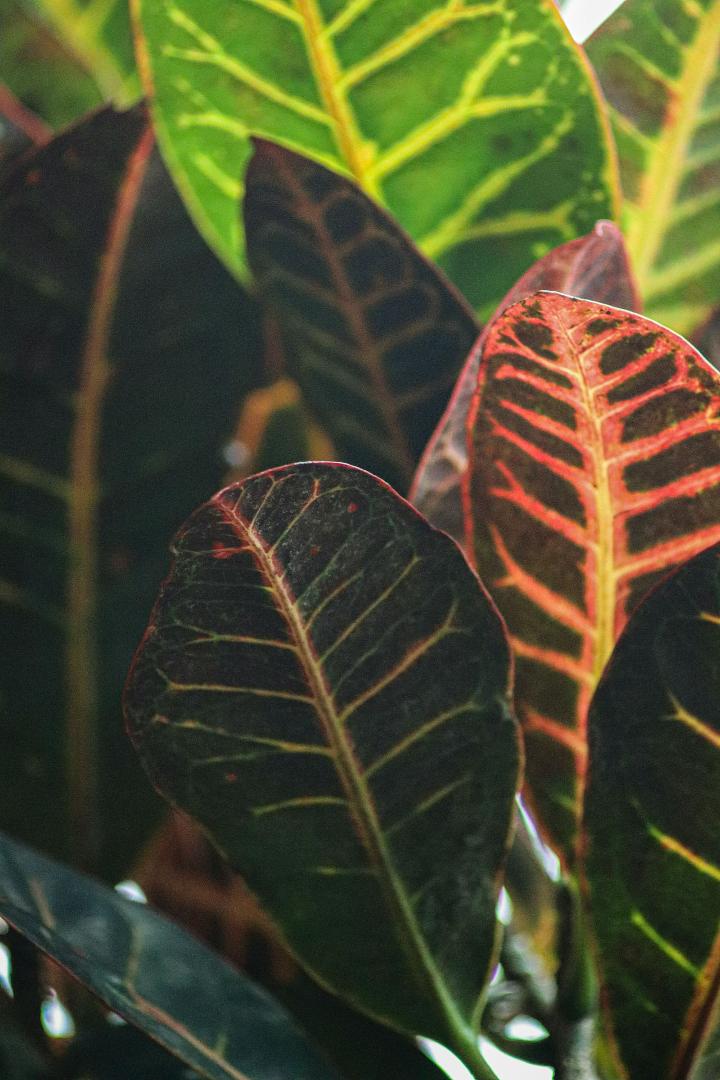
FAQ's About Growing Garden Croton Plants?
1. How to maintain garden croton plant ? To care for your croton plant in your garden, fill it with well-drained soil, place it in a location with indirect light, and water it when the toe of soil is dry. Keep the humidity high and the temperature the same. Apply water evenly every 2-4 weeks throughout the growing season. Prune as necessary to develop and remove damaged or yellowed leaves. Watch for pests such as scale or spider mites and treat them immediately.
2.What are the uses of garden croton plant?
Garden croton (Codiaeum variegatum) is a versatile plant with many uses. It is often used for ornamental purposes in the garden and landscape, adding bright colors and expanding vegetation. Some of the most common uses include: Garden Croton is often planted for its eye-catching color, making it a popular choice for decoration. It can be planted indoors as an indoor plant and adds beauty to the indoor environment. Croton can be used as a hedge or border plant to create a beautiful border in the garden. Ideal for container gardening, Croton grows in pots and can be placed on the terrace, balcony or any outdoor location. With careful pruning, crotons can be transformed into topiary shapes, creating unique art.
3. Can i grow garden croton plant indoor?
Yes, you can grow garden croton plants indoors. Make sure it gets light, direct sunlight, good soil and a warm, moist location. Water when the soil surface is dry.
4.Which pot is best for growing garden croton plant in india?
When growing garden croton plants in India, it is recommended to use a pot with good drainage and the right size for the root system of the plant. Clay or plastic pots with a well in the bottom work well. Make sure the pot is large enough to accommodate the growth of the plant and use a good potting mix with good ventilation. Check and adjust water regularly to suit the plant's needs, as the croton plant likes slightly moist but not waterlogged soil.
5.Where can I shop for garden croton plant in india ?
To buy garden croton plants in India, you can try consulting your local nursery, garden center or online platforms like Amazon, Flipkart or specialized plant websites.

